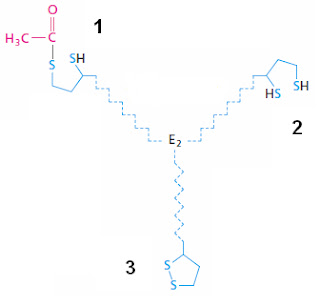The article discusses the difference of opinion between Jerry Coyne, on the one hand, and PZ Myers and me, on the other. It's very interesting to read the comments. Jerry Coyne has posted on the Inside Higher Ed article at: Ball State agrees to investigate science course infected with Christianity. His readers have lots to say on the issue of academic freedom.
Let's be clear about one thing. I'm not an American so I'm not terribly concerned about the American Constitution. If Eric Hedin were teaching in Canada, the legal issue would never come up. The part of this that I don't like is outsiders threatening departmental chairs to get them to take action against one of their faculty members. Four Creationists have tried to get the administration of my university to shut down Sandwalk and in all cases my university simply filed the letters in the waste basket.1 I ban people from Sandwalk if I ever hear of them trying to intimidate someone by complaining to their employer. That's unacceptable behavior in my book.
1. After sending me a copy.



































